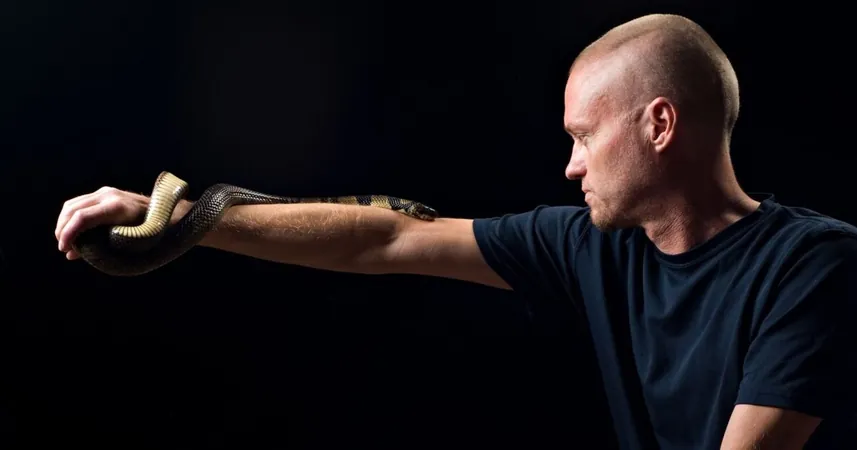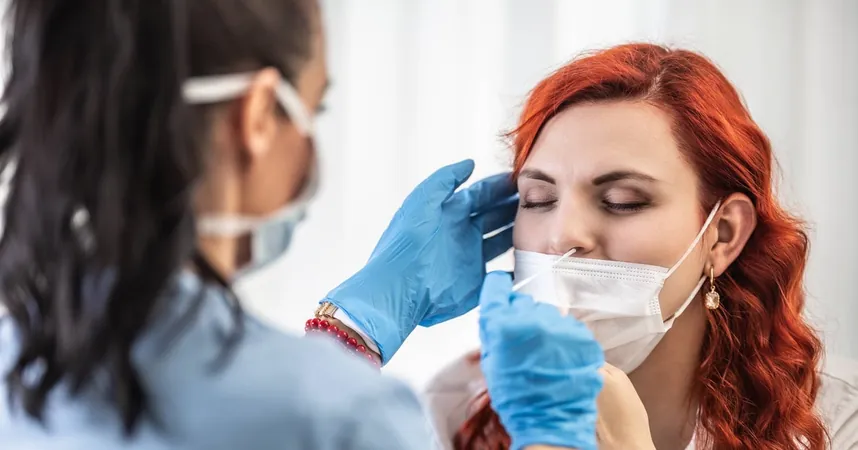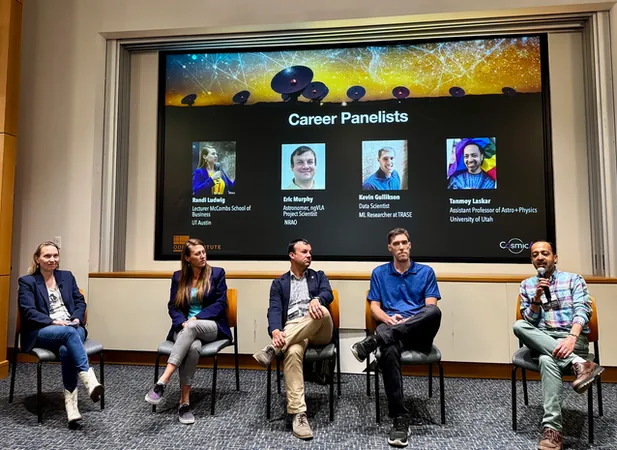
Man Lets Himself Get Bitten by Snakes 200 Times to Develop Antivenom
2025-05-02
Author: William
Remarkable Sacrifice for Science
In an extraordinary journey that began in 2001, Tim Friede voluntarily subjected himself to snake bites over 200 times, aiming to create a better antivenom for snake bites. Starting with venomous cobras, which he had at hand, Friede's initial experiences were intense and terrifying.
"My first couple of bites were really crazy," Friede recalls. "It's like a bee sting times a thousand, and the anxiety is through the roof." His lifelong fascination with snakes ignited a mission to raise awareness about the dangers of venomous snakes, which lead him down this perilous path.
Survival Against All Odds
Despite the dangers, including a near-fatal encounter that landed him in a coma after cobra bites, Friede pressed on. With a career dedicated to understanding venom, he began developing antibodies to create a roadmap for a universal antivenom.
His relationship with snakes, he explains, is straightforward: "They want to kill me, and I want to survive." His journey has now yielded groundbreaking results, with recent research highlighting his antibodies’ potential.
A Global Health Crisis
Venomous snake bites result in tens of thousands of deaths each year, particularly affecting individuals in low- and middle-income countries, according to the World Health Organization. The repercussions of these bites can be devastating, often leading to amputations and life-threatening complications.
With varying types of venom across different regions—like the neurotoxic varieties in Papua New Guinea causing paralysis—the need for effective antivenoms is critical. This has made the quest for a universal antivenom incredibly challenging.
Innovative Antivenom Development
Traditionally, antivenoms were created using animal antibodies, like those from horses. However, Jacob Glanville, CEO of Centivax, had a revolutionary idea: to utilize human antibodies from someone like Friede, who has been exposed to multiple snake venoms.
His search led him to Friede, who became the key to developing a broad-spectrum antivenom tailored to combat various venomous snakes.
Breakthrough in Antibody Research
Through detailed analysis, Glanville and his team managed to isolate an "ultra-broad antibody" that neutralized neurotoxins from multiple species, including the notorious black mamba. This exciting finding resulted in a successful experiment where mice received comprehensive protection against numerous types of venom.
After additional testing incorporating compounds that enhance venom response, they achieved breakthrough results—a cocktail of antibodies providing near-total protection from 13 diverse species of snakes.
A Step Towards Universal Antivenom
Experts are optimistic about this innovative approach, though hurdles remain, such as conducting human trials and extending coverage to other venomous snake families, like vipers. Friede's role not only contributes to science but also offers hope to countless victims affected by snake bites.
As they aim to test the antivenom cocktail on dogs in Australia before human trials, Centivax’s vision is to make antivenom affordable and accessible globally, tapping into a $600 million market.
A Legacy of Hope
Now serving as the director of herpetology at Centivax, Friede reflects on his journey with amazement. "I couldn't believe it when I learned my antibodies helped create this new antivenom cocktail. I know I'm giving back to humanity and contributing to science." Although he hasn't been bitten since, Friede admits he misses the adrenaline rush, stating, "It's wonderful to know I can keep my calm in the face of danger." His remarkable story serves as a powerful reminder of how one person's determination can pave the way for life-saving innovations.









 Brasil (PT)
Brasil (PT)
 Canada (EN)
Canada (EN)
 Chile (ES)
Chile (ES)
 Česko (CS)
Česko (CS)
 대한민국 (KO)
대한민국 (KO)
 España (ES)
España (ES)
 France (FR)
France (FR)
 Hong Kong (EN)
Hong Kong (EN)
 Italia (IT)
Italia (IT)
 日本 (JA)
日本 (JA)
 Magyarország (HU)
Magyarország (HU)
 Norge (NO)
Norge (NO)
 Polska (PL)
Polska (PL)
 Schweiz (DE)
Schweiz (DE)
 Singapore (EN)
Singapore (EN)
 Sverige (SV)
Sverige (SV)
 Suomi (FI)
Suomi (FI)
 Türkiye (TR)
Türkiye (TR)
 الإمارات العربية المتحدة (AR)
الإمارات العربية المتحدة (AR)